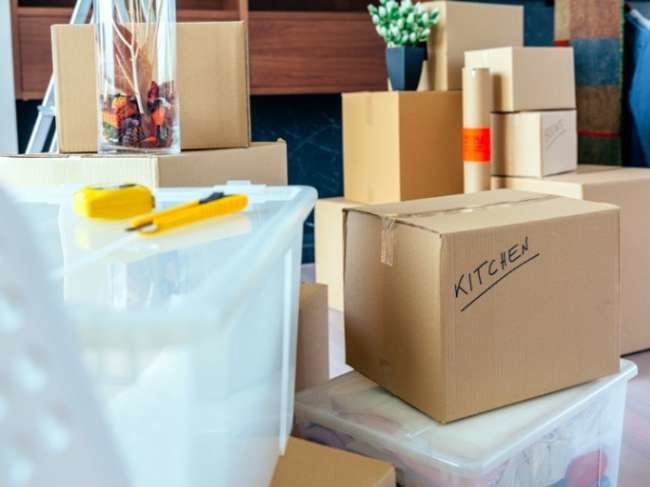

We may earn revenue from the products available on this page and participate in affiliate programs. Learn More ›
Home Advice You Can Trust
Tips, tricks & ideas for a better home and yard, delivered to your inbox daily.
Strategize More, Stress Less
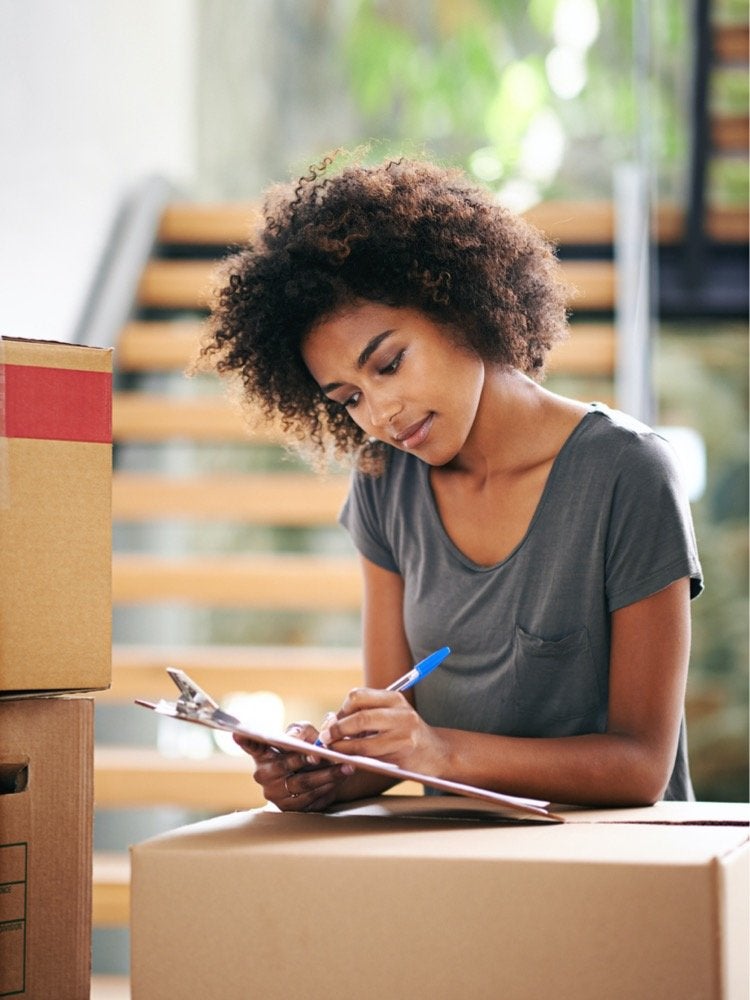
A successful moving day can take the planning and strategic mindset of a four-star general. Packing requires the utmost attention to detail, and arranging for help with any aspect of the move can add to the challenge. To keep you from stressing on the big day, follow these 12 tried-and-true tips and tricks from professional movers to get packed up, loaded in, and on your way.
Don’t take everything with you.
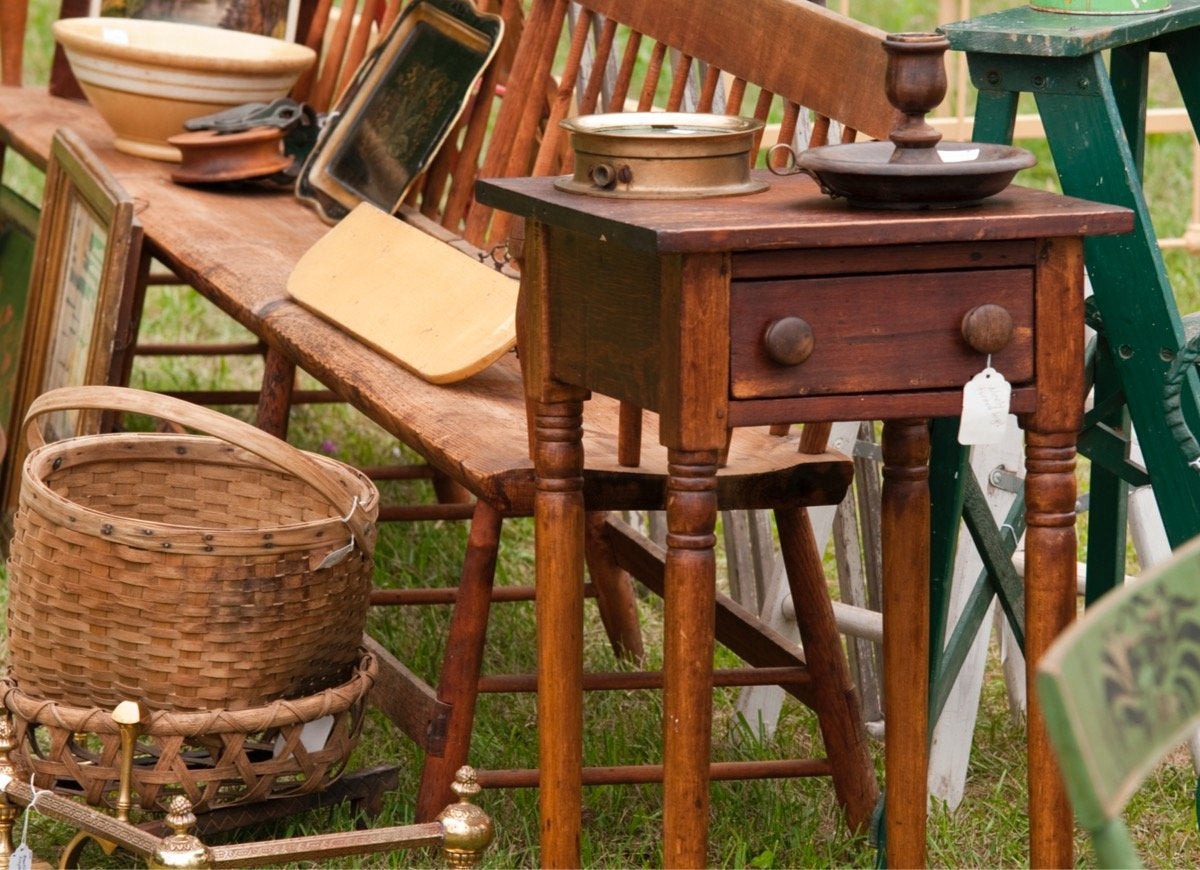
Professional movers are often astonished at how many things people want packed but don’t really need. These include old knick-knacks, out of date furniture, and half-empty bottles of shampoo or spices. Instead, take inventory of everything you own and decide what you really need and what’s just taking up space. Instead of packing that bin of Beanie Babies or box of turtlenecks, hold a yard sale and use the profits for moving expenses. Or donate gently used castoffs to friends or charities.
Pack important documents in a distinct or clear bin.
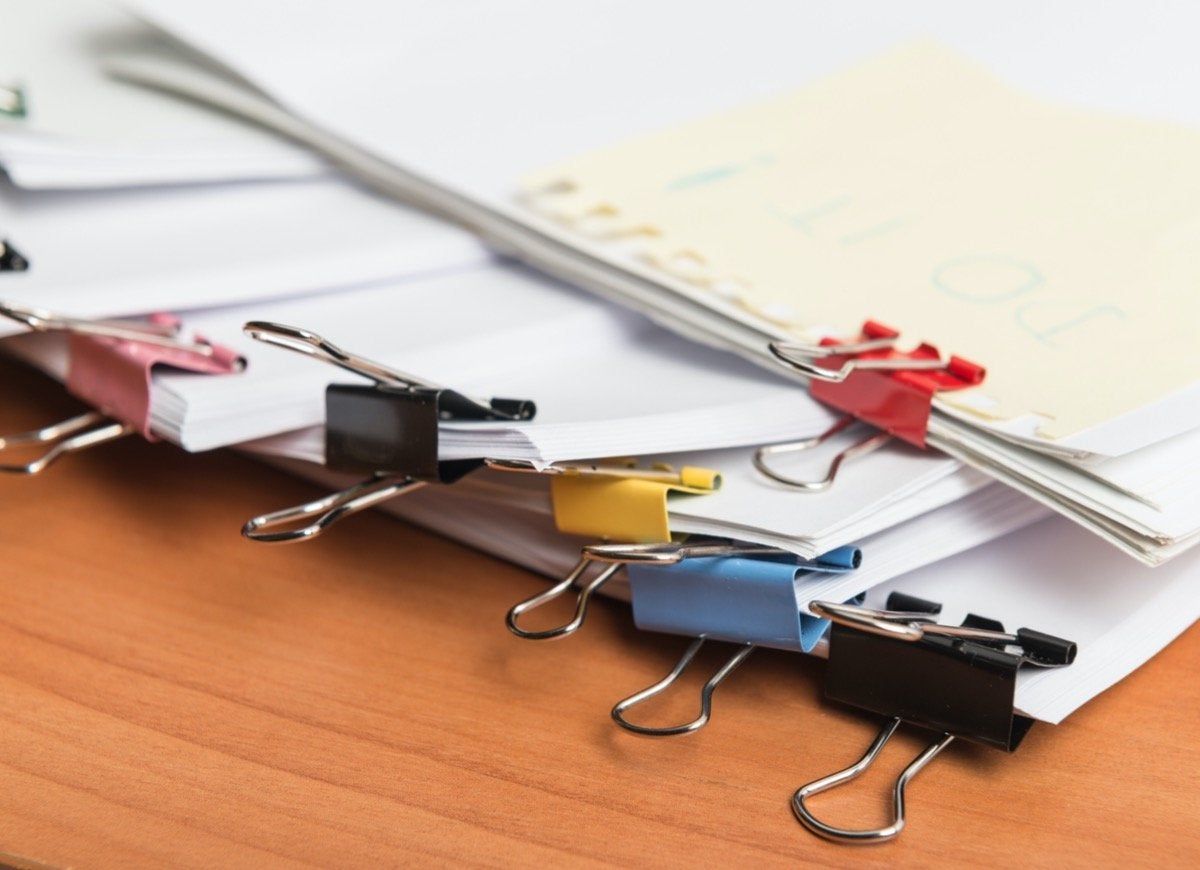
Don’t risk packing crucial papers in a cardboard box where it can be hard to find in a sea of cardboard boxes. Invest in a plastic, water-resistant bin for tax information, insurance documents, your will, passport, and other vital paperwork. These items will be safer, less likely to get damaged, and you’ll be able to locate them quickly in case you need to access them soon after the move.
Time it all out.

If you’re planning to hire help, don’t wait until the last minute. The end of the month is incredibly busy for moving companies, and procrastinating will leave you to pack your boxes and truck by yourself. Call to schedule your moving date as soon as you know when your new home will be ready. Reserve a truck and a few movers two to four weeks in advance to take most of the work off of your shoulders.
Hire labor and rent a truck—separately.
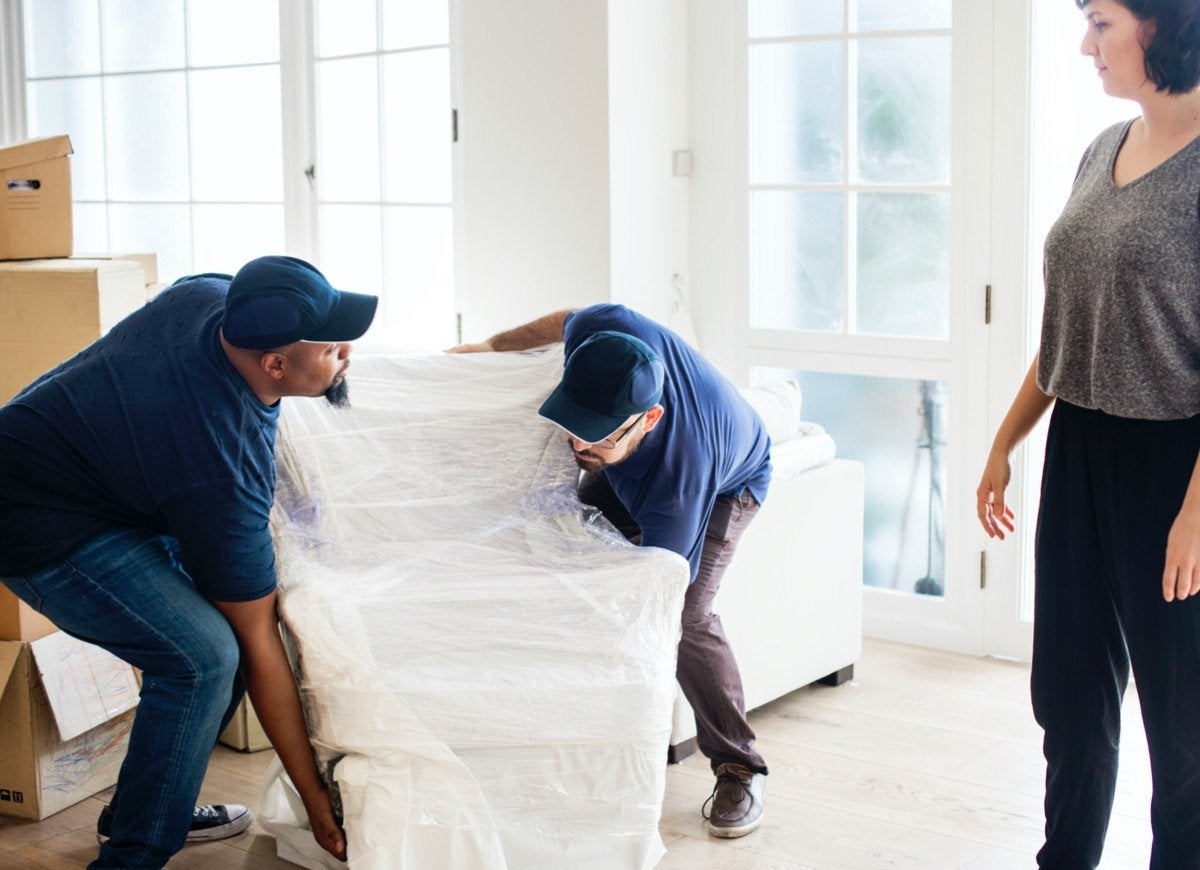
If you’re planning to hire help, you’ll save money by shouldering some of the burden yourself. While hiring a crew to help move could cost upward of $800, moving companies can charge an extra $1600 just to drive the truck and unload it. If you hire the crew to load but do the driving and unloading yourself, you’ll keep a lot of cash.
Take a pic before you unplug.
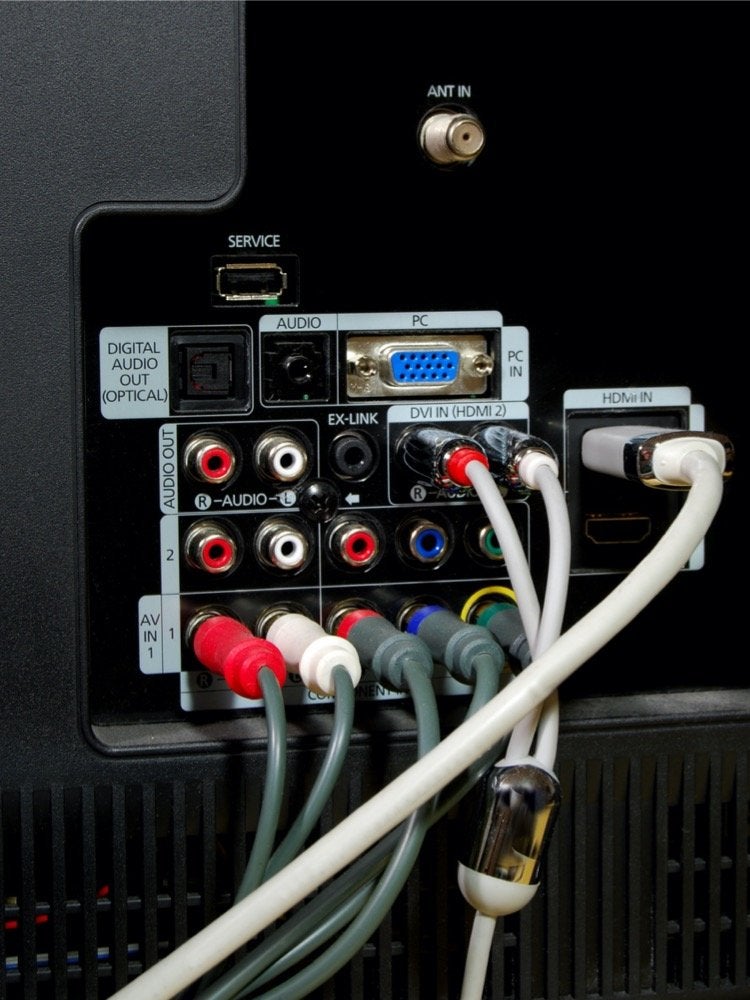
Moving companies prefer that you unplug electronics before they’ll touch them, and they don’t hook them up after unloading them. To avoid frustration, take a picture of the back of your TV, DVR, and game console before you unplug. When you move into your new home, you’ll have a better idea of how to hook them back up.
Fill a bag with essentials, and keep it with you.
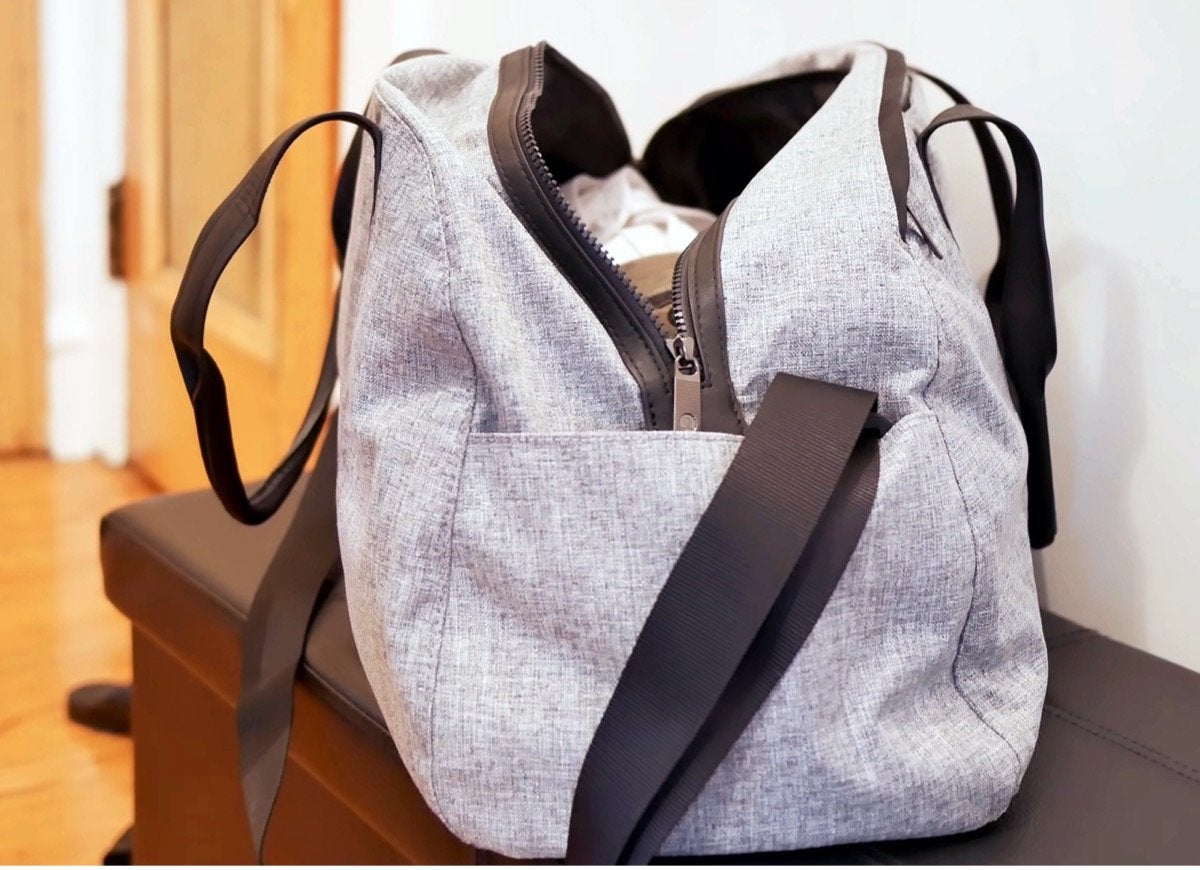
Before loading everything into a moving truck, gather essentials that can sustain you if things don’t go as smoothly as planned. Take snacks, water, a change of clothes, medications, kids’ toys, pet supplies (though ideally you’d arrange for pets to stay with a friend or kennel on moving day), and anything else that you might need. With this at your side, you’ll be able to rough it for a night if the moving truck gets delayed.
Stop by the liquor store.
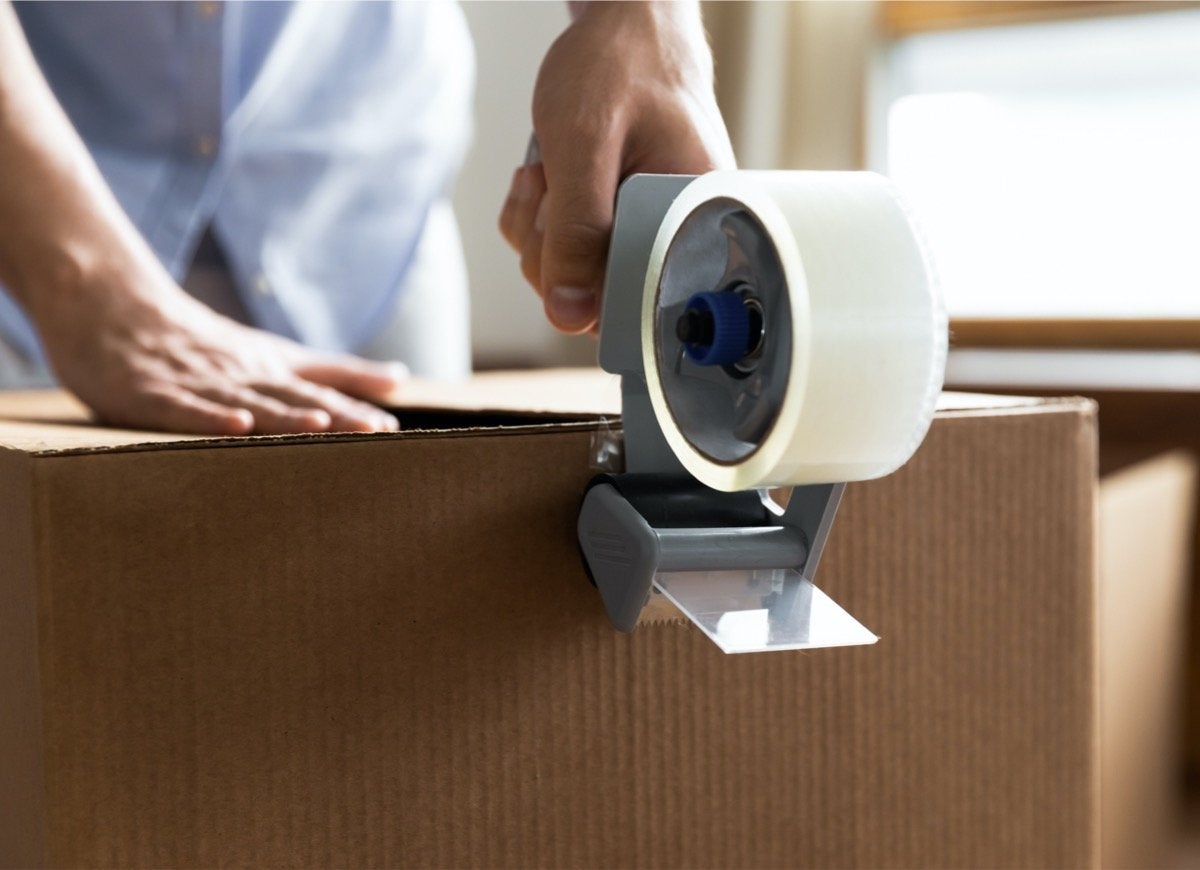
No, this isn’t about stress management! Ask the management of your local liquor store for any boxes that they’re ready to throw out. Bottles of booze can be very heavy, so those shipping boxes tend to be sturdy—often better quality than ones you can buy from a professional moving company. Liquor stores gladly give the boxes away free so they don’t have to break them down. Just choose boxes wisely to avoids smells and stains.
Pack, label, and load boxes by rooms.
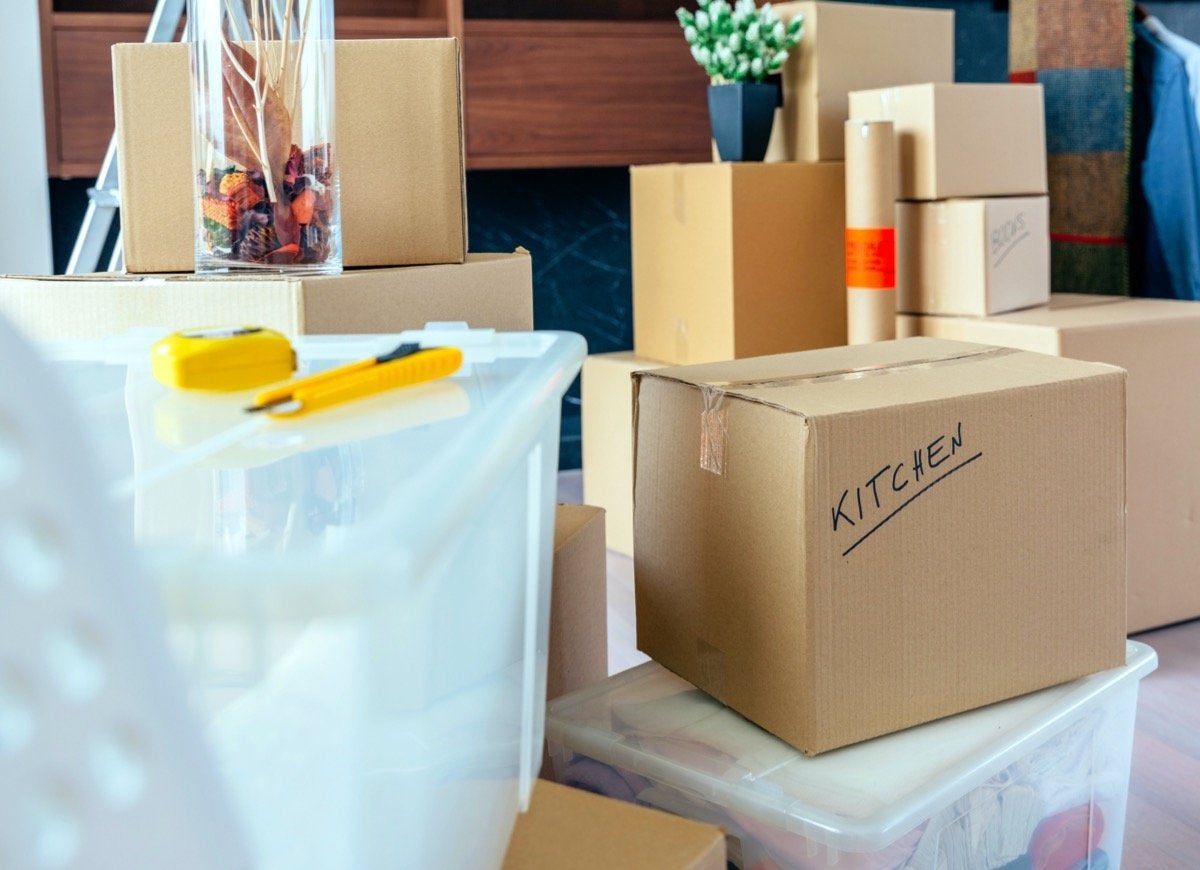
This is a major timesaver and stress-prevention measure. Moving companies suggest packing, labeling, and loading your moving boxes by individual rooms. When you get to your new home, you can bring the boxes right to the appropriate room. This not only makes moving day less stressful, it simplifies unpacking and settling in as well.
Pack smart.
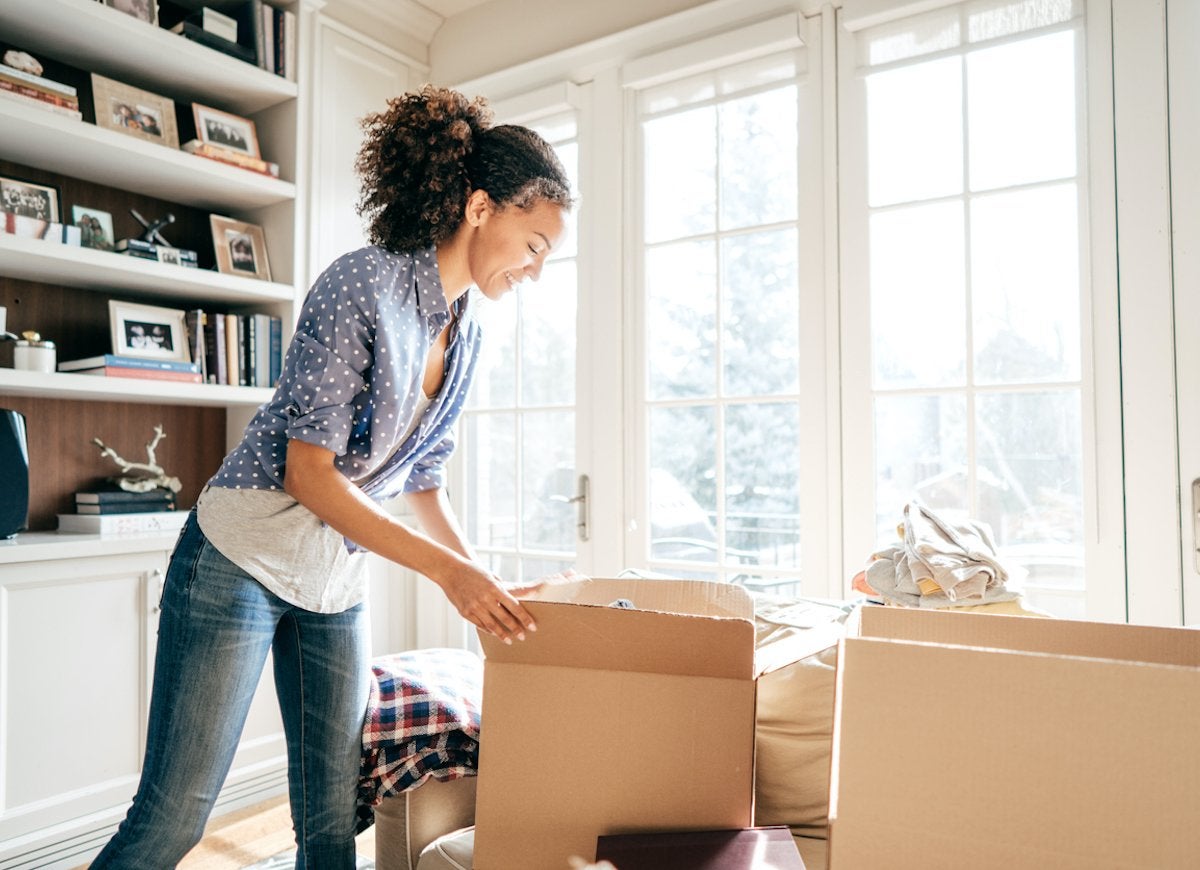
Moving companies won’t move boxes that feel top-heavy, unbalanced, or loosely-packed, so pack appropriately. Put heavier objects in small boxes and lighter objects in large boxes. Make sure to pack heavier objects at the bottom to avoid a top-heavy box that’s awkward to carry. Also avoid leaving space in a box to prevent breaking or damaging items inside. Stuff soft materials like T-shirts, towels, newspapers, or pillows in boxes with empty space. If the box rattles, a pro mover will ask you to repack it before they load it.
Pack cleaning supplies in a waterproof tote.
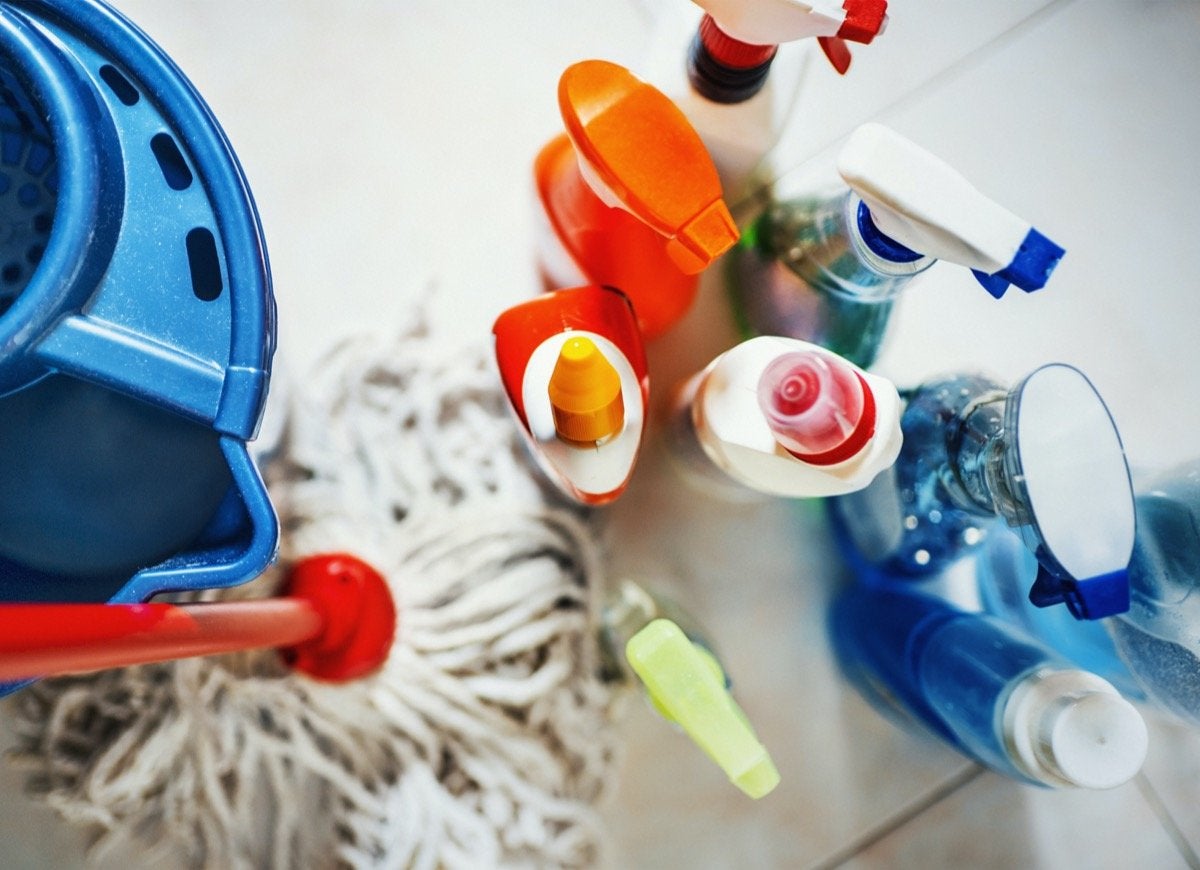
Most moving companies are not keen on moving liquid items, particularly cleaning products containing the likes of bleach and ammonia. The safest bet is to avoid taking these items and simply buying what you need when you reach your destination. Pack any cleaning products that must join you on your journey in a plastic tote so if they leak, they’re less likely to ruin your other belongings.
Plastic wrap drawers and doors.
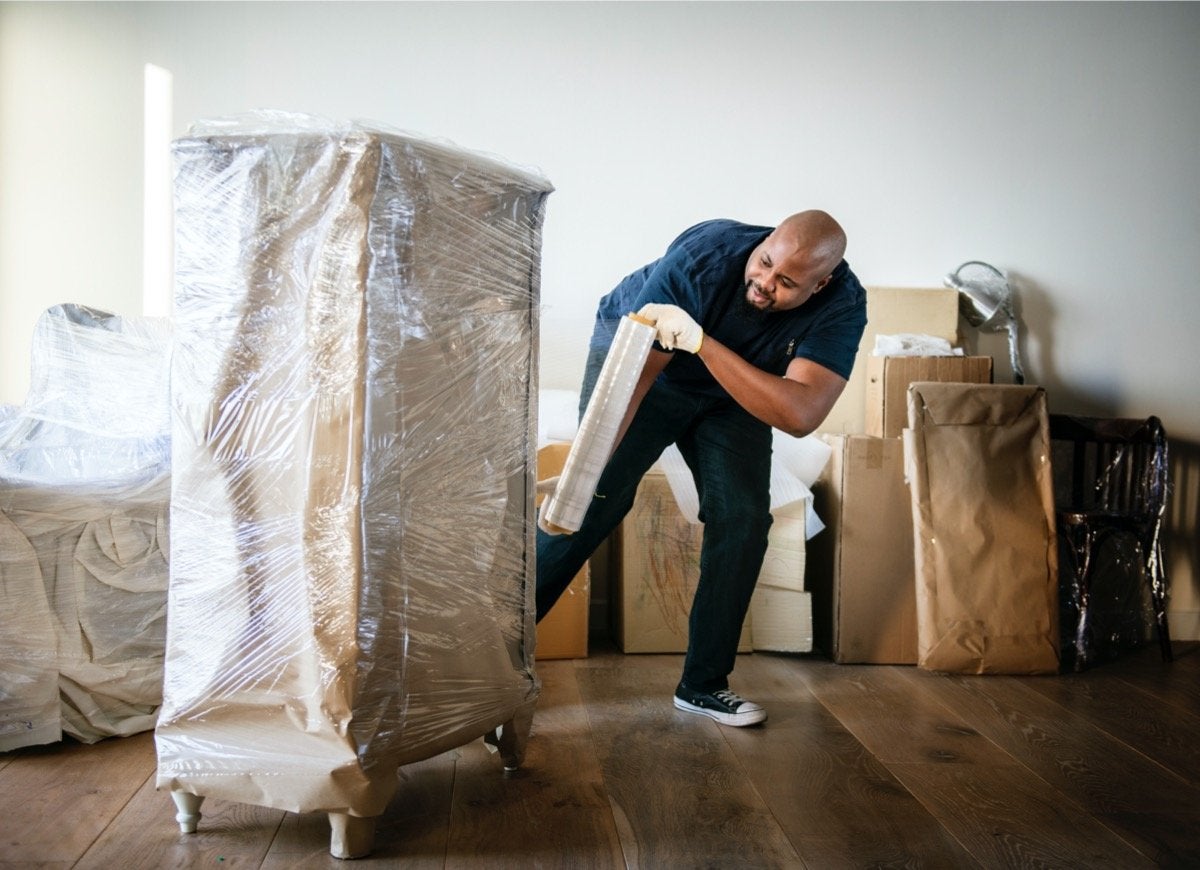
If moving larger furniture, plastic wrap drawers and doors shut to keep them from swinging open or closing on your fingers during the move. You can also leave all of their contents inside, cutting down on how much you need to pack. Plastic wrap does an excellent job of keeping them shut without leaving sticky residue behind. It can also reduce the chances of chipping and scratching during the move.
Load the truck safely.
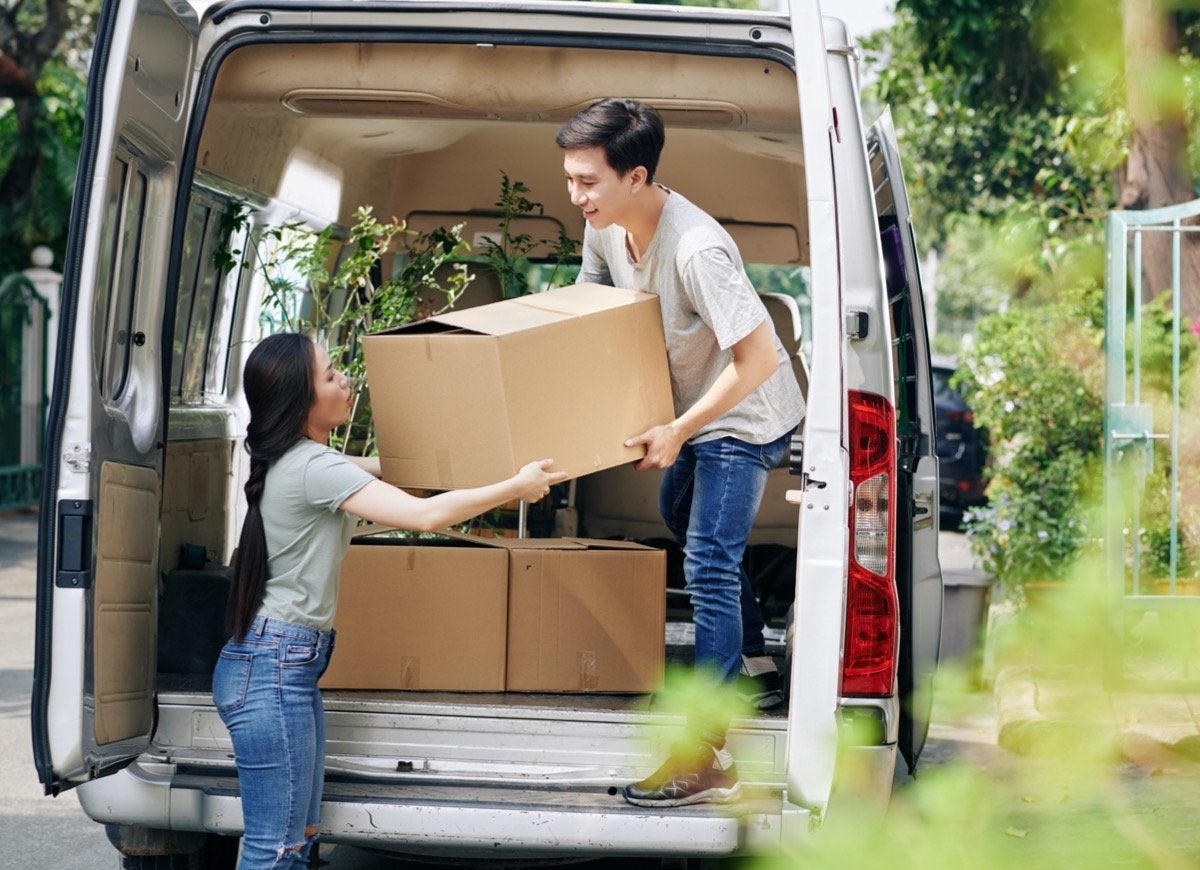
When professional movers load a truck, they pack the heaviest objects first, and they push them all the way to the front of the cargo box. This includes heavy furniture, appliances, toolboxes, and heavy cardboard boxes. This ideally distributes the weight throughout the truck, making it safer and easier to drive. Loading heavy objects last might seem easiest, but it can affect the truck’s suspension dynamics and lead to an unpredictable ride.
Learn from the pros.
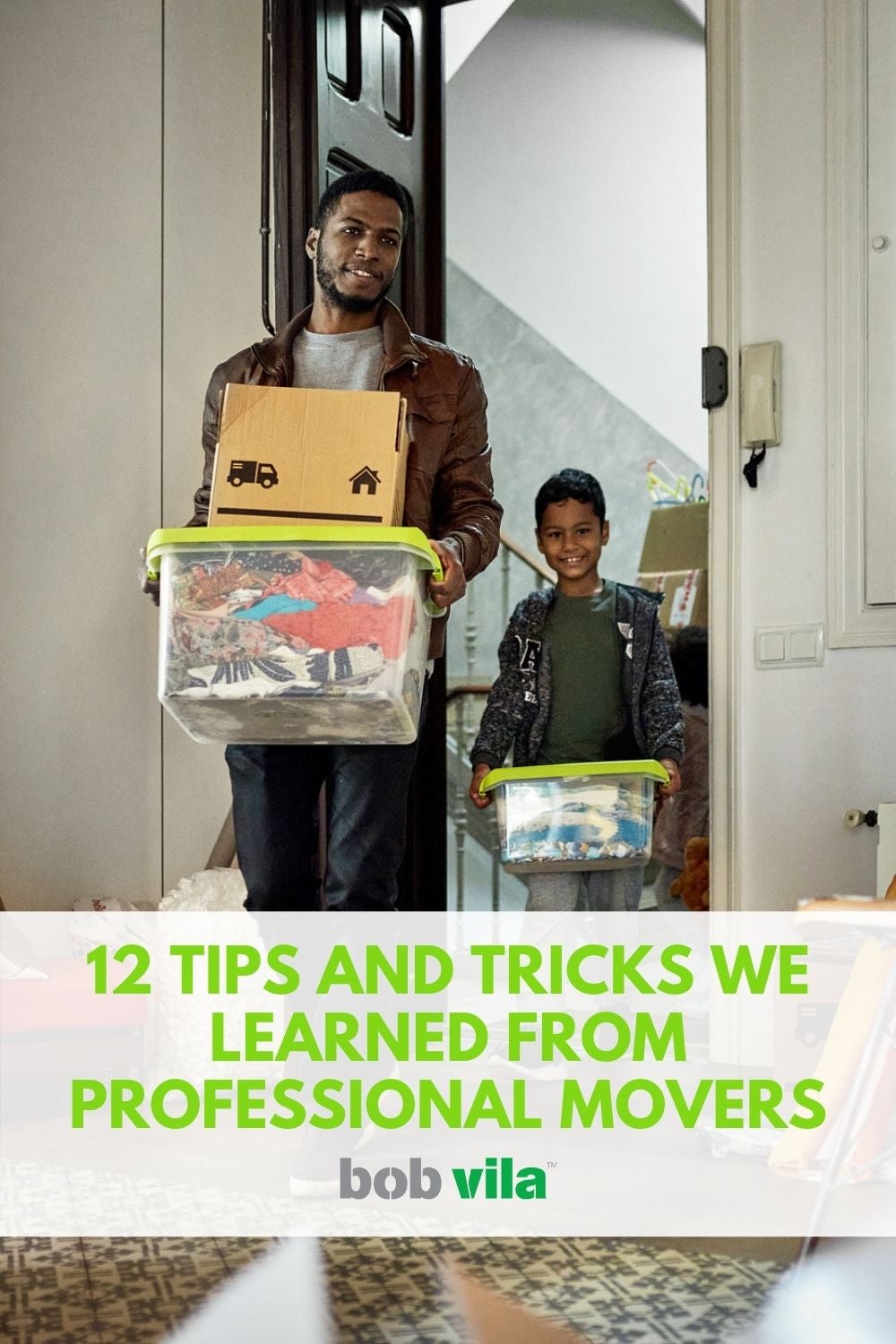
Before you move, be sure to check out these helpful hacks from the pros to make it easier and less of a headache for the whole family.

The Homeowner Survival Kit
This year’s Bob Vila Approved is a hand-picked curation of tested, vetted, must-have essentials for surviving homeownership today.